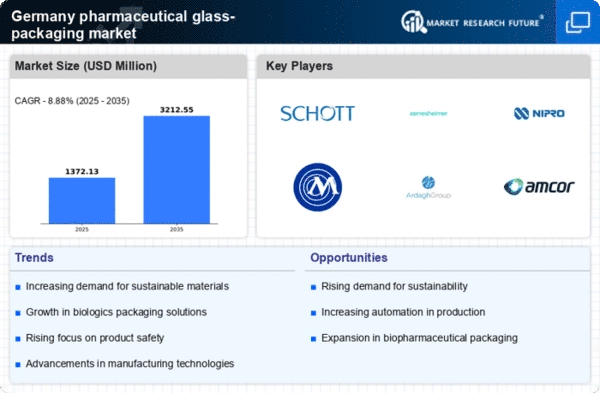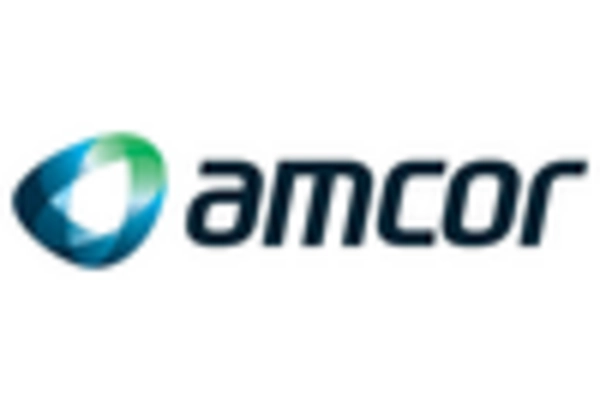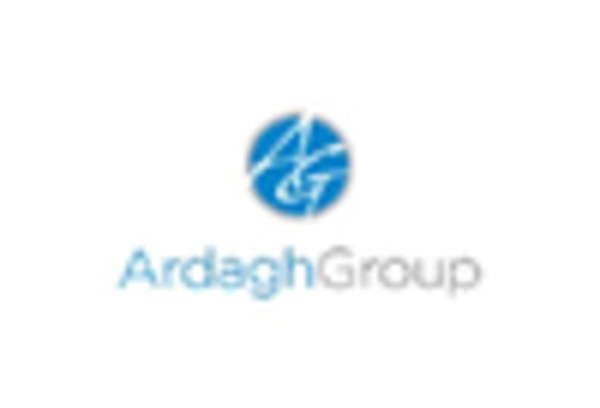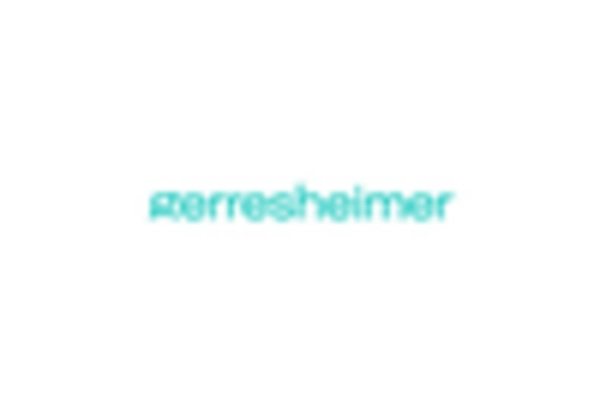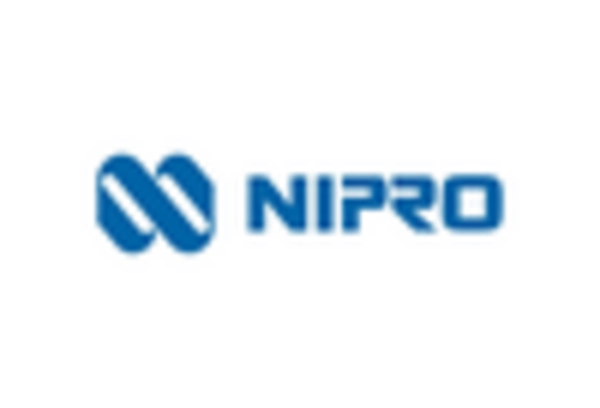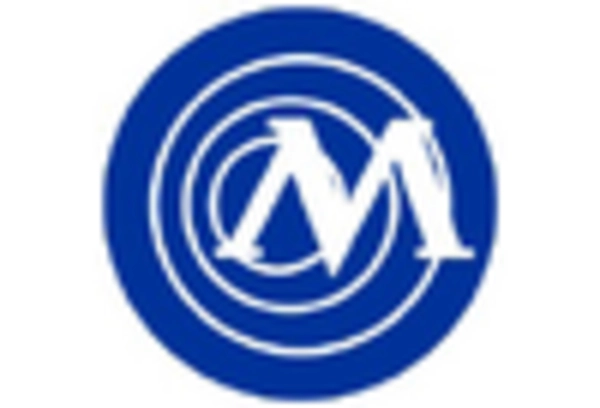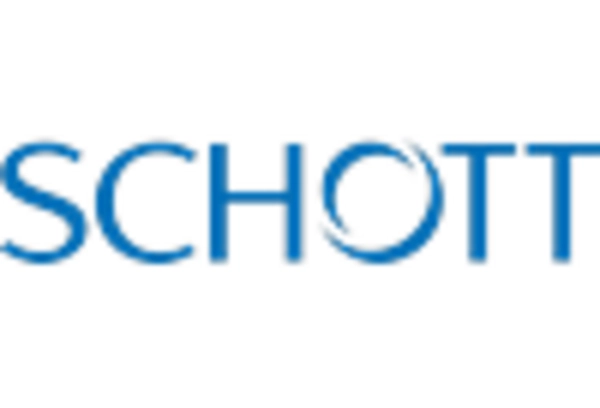Growing Export Opportunities
The pharmaceutical glass-packaging market in Germany is poised to benefit from expanding export opportunities. As the country is recognized for its high-quality pharmaceutical products, there is a corresponding demand for reliable packaging solutions in international markets. In 2025, it is estimated that exports of pharmaceutical products will increase by approximately 15%, creating a favorable environment for glass packaging manufacturers. This trend indicates that companies focusing on export-oriented strategies may experience substantial growth. Furthermore, the increasing globalization of the pharmaceutical industry is likely to drive demand for standardized packaging solutions that comply with international regulations. Consequently, the potential for growth in export markets presents a significant driver for the pharmaceutical glass-packaging market, encouraging manufacturers to enhance their product offerings and expand their reach.
Increased Focus on Patient Safety
Patient safety remains a paramount concern within the healthcare sector in Germany, influencing the pharmaceutical glass-packaging market. The need for tamper-evident and child-resistant packaging is becoming increasingly critical as regulatory bodies emphasize the importance of safeguarding patients. In 2025, it is estimated that around 25% of pharmaceutical products will require enhanced safety features in their packaging. This shift is prompting manufacturers to innovate and develop glass packaging that not only meets safety standards but also enhances user experience. The integration of smart technologies, such as QR codes and NFC tags, into glass packaging is also gaining traction, allowing for better tracking and information dissemination. Consequently, the focus on patient safety is likely to drive growth in the pharmaceutical glass-packaging market, as companies strive to meet evolving consumer expectations and regulatory requirements.
Rising Demand for Biopharmaceuticals
The increasing prevalence of chronic diseases in Germany is driving the demand for biopharmaceuticals, which often require specialized packaging solutions. The pharmaceutical glass-packaging market is experiencing growth as biopharmaceuticals typically necessitate high-quality, sterile packaging to ensure product integrity. In 2025, the biopharmaceutical sector is projected to account for approximately 30% of the total pharmaceutical market in Germany, indicating a substantial opportunity for glass packaging manufacturers. This trend suggests that companies focusing on innovative glass solutions may capture a larger market share, as they cater to the specific needs of biopharmaceutical products. Furthermore, the shift towards personalized medicine is likely to further enhance the demand for tailored glass-packaging solutions, thereby reinforcing the importance of this driver in the pharmaceutical glass-packaging market.
Sustainability Regulations and Initiatives
Germany's commitment to sustainability is significantly impacting the pharmaceutical glass-packaging market. The government has implemented stringent regulations aimed at reducing environmental impact, which encourages the adoption of eco-friendly packaging solutions. In 2025, it is projected that sustainable packaging will constitute approximately 40% of the total packaging market in Germany. This shift is prompting pharmaceutical companies to seek glass packaging options that are recyclable and made from sustainable materials. The emphasis on reducing carbon footprints and promoting circular economy principles is likely to drive innovation in glass packaging technologies. As a result, manufacturers that prioritize sustainability in their product offerings may gain a competitive edge in the pharmaceutical glass-packaging market, aligning with both regulatory requirements and consumer preferences.
Technological Innovations in Manufacturing
Technological advancements in manufacturing processes are reshaping the pharmaceutical glass-packaging market in Germany. Innovations such as automated production lines and advanced quality control systems are enhancing efficiency and reducing production costs. In 2025, it is anticipated that the adoption of Industry 4.0 technologies will increase productivity in glass packaging manufacturing by approximately 20%. This trend suggests that companies investing in modern manufacturing technologies may achieve significant operational advantages. Additionally, the integration of data analytics and artificial intelligence in production processes is likely to improve product quality and consistency. As a result, manufacturers that leverage these technological innovations may be better positioned to meet the growing demands of the pharmaceutical sector, thereby driving growth in the pharmaceutical glass-packaging market.


